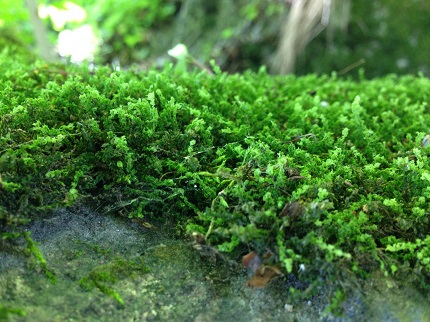During the Ordovician period, the concentration of CO2 in Earth’s atmosphere was about eight times higher than today. It has been hard to explain why the climate cooled and why the Ordovician glaciations took place. A new study shows that the weathering of rock caused by early non-vascular plants had the potential to cause such a global cooling effect.
“When we can better understand the carbon cycle in the past, we can better predict what happens with the climate in the future,” says Philipp Porada, one of the authors of the study.
Non-vascular plants, such as mosses, hornworts and liverworts, probably evolved during the Ordovician period, around 450 million years ago.
They are older than vascular plants, such as trees and grasses, and together with lichens, which are a symbiosis of fungi and algae, they formed the earliest terrestrial vegetation. Today’s successors of these organisms are distributed worldwide and are characterised by their ability to survive in environments in which the supply of both water and nutrients is scarce. They are found in both cold and warm desert regions and are able to grow on rock surfaces and the bark of trees. Although they do not have real roots, they affect the surfaces on which they grow: the release of various organic acids dissolves underlying rock minerals.
This process of dissolution and chemical transformation of rock minerals is called chemical weathering. Non-vascular plants and lichens may considerably increase weathering rates of the rock surfaces on which they grow. This has important implications for the climate system, since chemical weathering of silicate rocks such as granite results in a drawdown of atmospheric CO2 and may therefore lead to global cooling. During the weathering process CO2 dissolves in water as acid, and is then transported to the ocean where the carbon is buried as carbonate rock. Consequently, it has been hypothesised that early non-vascular vegetation caused an interval of glaciations at the end of the Ordovician period, when they became globally abundant. Without the drawdown of atmospheric CO2 caused by the enhancement of weathering rates, the Ordovician glaciations are hard to explain, since they started under conditions of eight times higher atmospheric CO2 than today.
“I believe that the most interesting thing about the study is that tiny plants such as mosses and lichens can influence global climate in the long run,” says Philipp Porada.
“However, it is difficult to extrapolate today’s weathering rates by non-vascular plants and lichens measured in the field to a global effect on chemical weathering in the Ordovician. In our study we therefore use a process-based numerical model of non-vascular vegetation to simulate weathering by these organisms in the Late Ordovician. We find a high potential for weathering, which means that the emergence of early non-vascular plants and lichens indeed may have been the reason for the Late Ordovician glaciations.”
Source: Science daily
N.H.Kh

